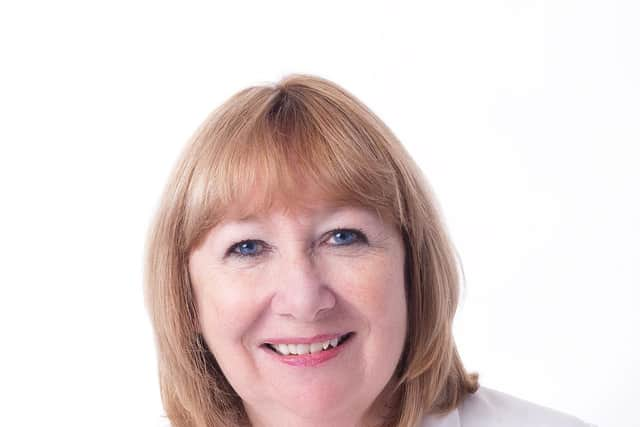No one should be left to struggle with mental health issues on their own - Irene Oldfather
All of us sit on that spectrum, just at different points – from feeling positive when life is going well to feeling down sometimes even when things are going well, to feeling lost, alone. Isolated, worthless. If someone has a broken leg, we can see it and be kind. Too often with mental health people struggle alone.
The pandemic both exacerbated that isolation and loss but also shone a light on how we to need to ensure that we consider “health” in the widest possible context, particularly focusing on mental health and wellbeing.
Advertisement
Hide AdAdvertisement
Hide AdI had the privilege of spending a couple of years hearing the stories and constructing and analysing the engagement of those in Tayside – carers and people themselves – with experience of Mental Health Services. It taught me a lot and you can read the Health and Social Care Alliance Scotland (the ALLIANCE) publication that influenced the Report on Mental Health in Tayside on our website.


One thing that most struck me at the time was how service delivery appeared to be stuck in silos. I heard examples of how mental health support couldn’t start until those with drug and alcohol-related problems could demonstrate that they were completely in recovery.
Thankfully these artificial boundaries in mental health are becoming less defined and we see a better understood and more joined-up approach. One example of this more joined-up approach can be seen in the ALLIANCE’s Scotland Reducing Gambling Harm programme looking to understand the relationship between gambling and mental health impact. We are also beginning to understand more about the relationship between harm and suicide – working with our key partners in the health and social care and drug and alcohol partnerships to promote more person-centred approaches based on constructive and personal conversations.
Recovery in mental health is not always a linear process and waiting for a referral and access can exacerbate, as opposed to improve, people’s situations. Self care and self management also should not be seen as cheap options but, rather, should offer real opportunities around local and community support offered upstream and early. This type of intervention can not only assist recovery, it can stop relapse. The ALLIANCE’s Self Management Fund has financed at local level many projects offering opportunity for rehabilitation and restoring self worth.
Such projects often come with vital peer support networks which our work has shown to be powerful influences in recovery and can provide timely support.
Looking to the future the Scottish Government will be consulting on both its Mental Health Strategy and its proposed Mental Health Standards over the summer. The ALLIANCE, along with our third sector colleagues Vox Scotland, has undertaken much of the engagement to ensure that the views and experiences of people are at the heart of the new strategy and standards. It is clear that both of these pieces of work have to be underpinned by a strong implementation plan that has at its heart a human rights based approach. The last thing we need is a strategy that sits on a shelf.
Understanding that mental health problems can affect any one of us must surely be part of destigmatising something that for too long has been hidden behind closed doors. Putting in place universal standards and attaching a human rights-based approach to how we access good services is part of how we ensure that everyone in Scotland is equally entitled to expect appropriate support when they need it.
Irene Oldfather is Director at the Health and Social Care Alliance Scotland (the ALLIANCE) and was formerly a Member of the Scottish Parliament.
Subscribe
Subscribe at www.scotsman.com/subscriptions
Comments
Want to join the conversation? Please or to comment on this article.
